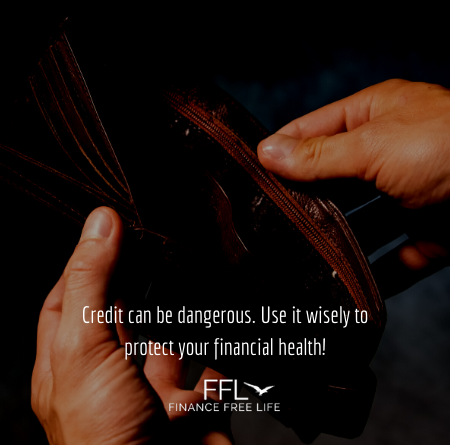Credit Boot Camp – The Basics
Understanding credit can be a difficult task, especially your first encounter with bank credit. What is credit? How does it work? What is a good credit score? These may be some of the questions you have about credit.
What is credit?
Let’s start with a basic overview of what credit is, what its purpose is, and how to use it wisely. Basically, credit is the lending of money for a specific purpose with the agreement to repay. Credit most often has some form of collateral attached to it, to provide the lender with more security on their investment, in case the borrower defaults. Not all credit requires collateral, which is called unsecured credit. In either case, it is important to understand exactly what the credit you are dealing with does. There is another connotation for credit which is not the act of lending funds, rather it is the assigned value one is given as a result of having funds lent to them in the past. This is commonly referred to as your FICO (Fair Isaac Corporation) score or credit score.

Why do you need a score?
This score has proven to be very important over the years as we have applied for different forms of credit such as a home mortgage, car loans. credit cards, and student loans. Having a strong credit score has allowed us to always get good rates on our loans and avoid higher interest rates typically imposed with lower credit scores. The scores can range from 300 at the lowest and 850 at the highest.
Although there is a wide range of scores one person might have, there is a rather small gap in scores from which a person will have the best chance of getting the lowest rates. This score is debatable by some, but typically any score over 740 will likely get you the lowest rates and the best chance of getting an approval of a loan. Rates will continue to increase as the score drops in value. However, anything in the mid to low 600’s will result in the highest rates.
A slight change in rates may not seem like a big deal, but consider a difference of 1% on a $250,000 30-year mortgage. Due to your FICO score, you may end up with a 5% rate or a 6% rate. This difference results in approximately $1800 a year you would be paying more at a higher rate. Although some finance gurus argue cash is king, having $250,000 cash is not possible. In these scenarios, it is very important to have a strong credit score to have the ability to purchase your first home or get a small car loan to have a mode of transportation.
What Affects Your Score?
Having personally looked at thousands of credit reports in my tenure in the finance realm, there is no clear cut system that is used to determine the overall credit score. The report itself lists all current and previous credit obligations. It also reflects the history of each item. Thus, one of the factors affecting your score is going to be your payment history and whether or not they were paid on time.
Another factor has typically been seen in how much you are using from your current credit lines and other outstanding loans. If you are highly weighted in your current outstanding credit debt, you will likely be deemed a possibility of defaulting or missing payments in the future. Other factors that are said to affect the scores are the length of time your different credit lines have been open, the mix of different types of lines, the frequencies in opening up new accounts, and checking your credit to add an additional line.
How do you maintain your score?

With all of these different factors, there isn’t a set checklist or calculations to guarantee a certain credit score. Fortunately, there are multiple ways you can check your current credit score for free. Your first choice would be to check with your bank. They may have the ability for you to check your score or get an estimate for free. The next few options would be the following websites: www.creditkarma.com, www.freecreditreport.com, and www.annualcreditreport.com.
When checking your score for a loan or credit purposes, it damages your credit score slightly. Each of these sites provides the ability for you to check your score without damaging it. Many of these sites which offer to check your credit score will indeed provide the ability to check, however, they typically have you sign up for their monthly subscriptions. You can cancel these subscriptions prior to being charged for the first time, which is typically 14 days. Once you have had the chance to review your credit scores, it’s important to check for accuracy. If there are items that you do not recognize, it is crucial you dispute these. The three main credit reporting agencies are Experian, TransUnion, and Equifax. You will likely need to go through each to dispute different listings. The links for the dispute forms are here: Experian, Equifax, and TransUnion.
What do I do next?
Knowing and understanding your credit is going to be your first step in increasing or repairing your score. Having cash to pay for everything is always going to be your best scenario when having strong finances. However, this is not always going to be the most ideal scenario. Life happens! It doesn’t hurt to have a backup plan and strong scores to support you when things get rough. Having this knowledge about your score is the first step. Knowing how to use the tools credit can provide to you is the next.
Be sure to check out the next few articles about credit. Learn how you can utilize them for your benefit without creating a bigger financial problem later on.
1.Credit Boot Camp – Using Credit Well Part 1 – Credit Cards
2. Credit Boot Camp – Using Credit Well Part 2 – Vehicle Loans
3. Credit Boot Camp – Using Credit Well Part 3 – Home Equity/Mortgages

